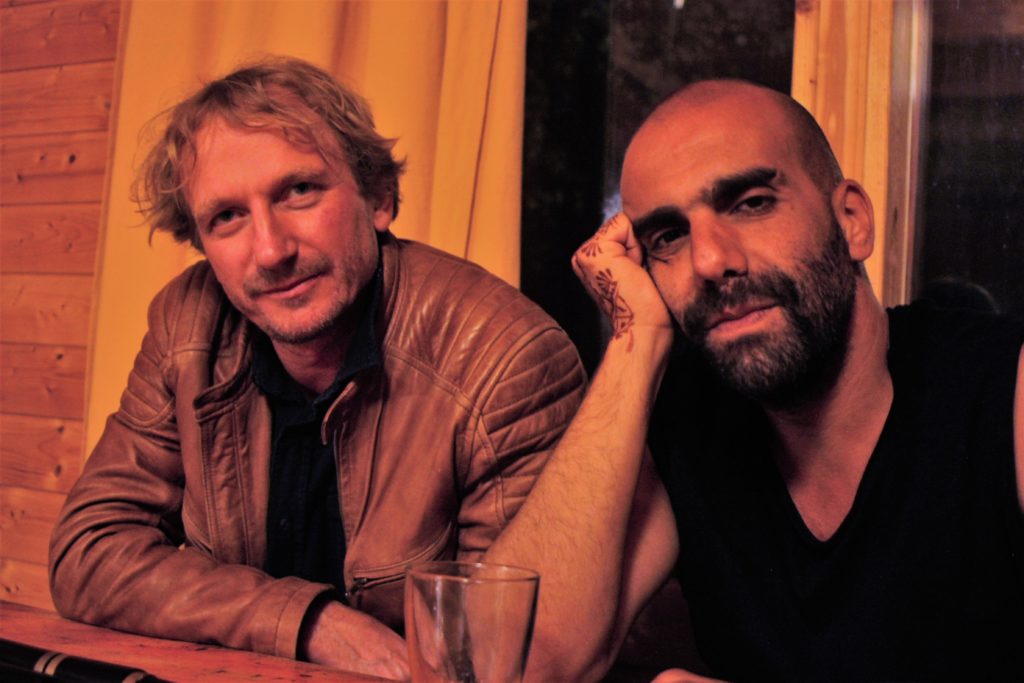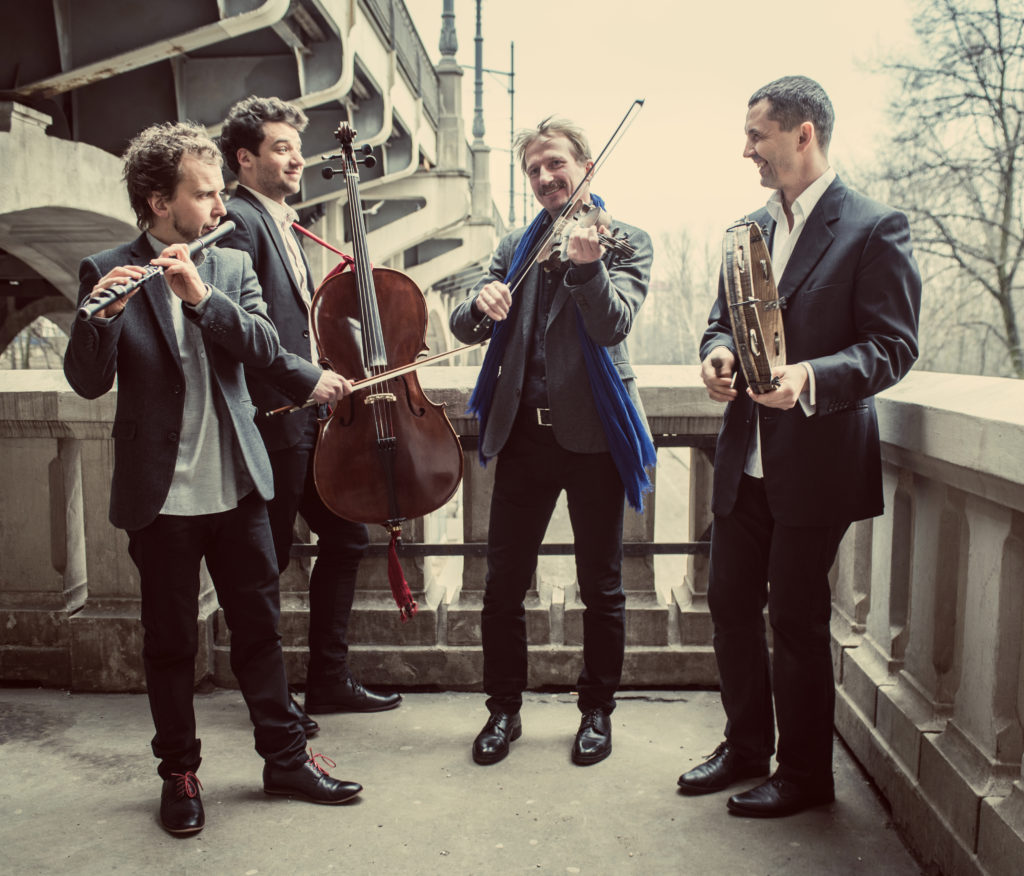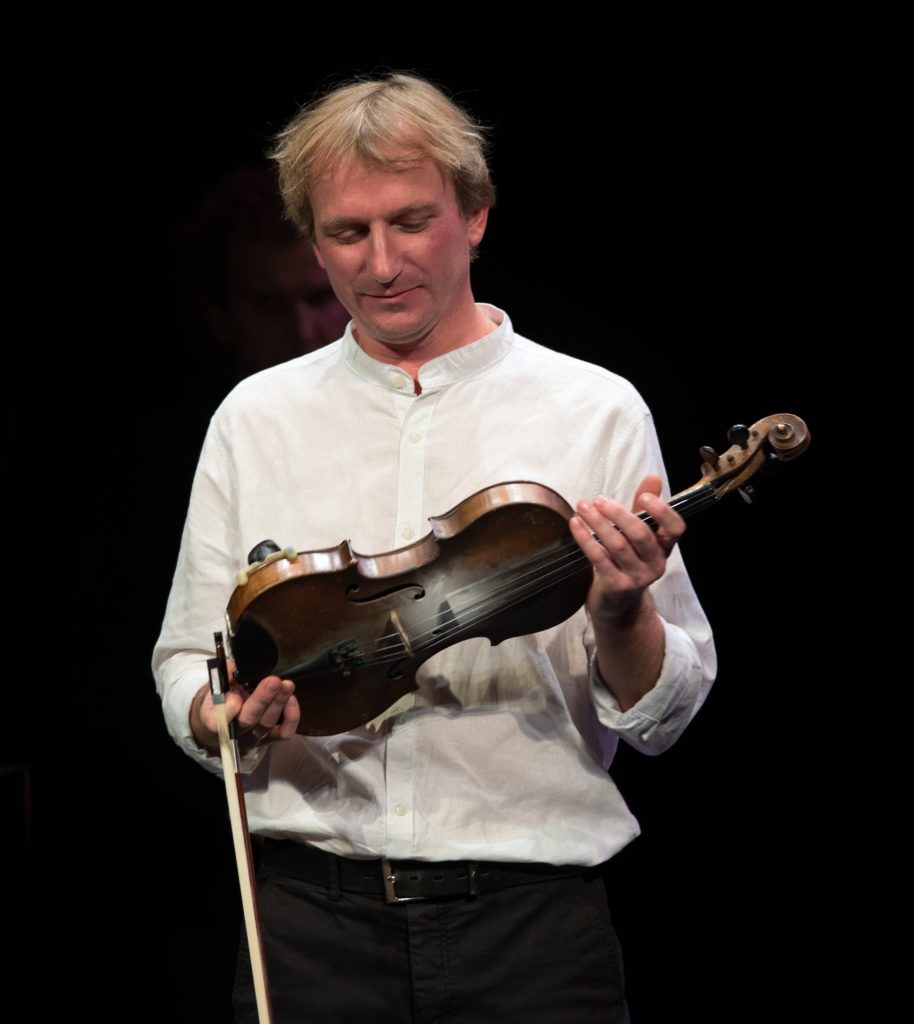JEWISH MUSIC
Clic the pictures to watch a video:
GULAZA (Yemen/Israel)
|
 |
JANUSZ PRUSINOWSKI & IGAL GULAZA MIZRAHI (Poland)
|
  |
JANUSZ PRUSINOWSKI KOMPANIA
|

|
I listened to archive recordings (from the US, beginning of XX Century) learning to play this music on the accordion, participating in Jewish Music Festival in Krakow, reading Polish – Jewish writers (such as I. B. Singer). I played Jewish freilechs, doinas and nigns on the streets of Krakow those days.
Then I heard village mazurkas and obereks and turned totally back to Polish village music. And in the repertoire of fiddlers and singers there were tunes called “Polka żydówka” (Jewish polka) and other tunes. And when I asked the musicians, they told stories of how they were playing in the bands with Jewish musicians or how the music they remembered sounded. Before the war, of course.
Few days before his death, in the Autum of 2016, I visited Piotr Gaca (in the picture), one of the most appreciated village masters. He asked me – checking my memory and inner organisation – how many Jewish polkas I remembered. I was not sure – then he said “four”. And played all of them by numbers.
So Jewish melodies – like the whole culture – become element, part of Polish, in the multicultural meaning, musical culture.
And as such I play them, those Jewish melodies, both from living tradition and from notes, because they are beautiful, and because they belong – somehow – to me, as a heritage of this culture and land.
Oskar Kolberg, probably the main researcher of traditional tunes in Poland, was interested mostly in Polish and Slavic music and culture. Jewish melodies are very rare in his notebooks, but the ones he collected are beautiful. Sometimes he describes the tunes as Jewish, sometimes not, but they are so different, that quite easy to recognize. Nobody expected that this people would disappear.
Furthermore, Polish and Jewish cultures have quite much in common, so I can understand better Polish culture thank to Jewish music/culture knowledge. It is a bit like with the Bible – great part of it belongs not only to Jews, but to all people from the culture of the Bible.

